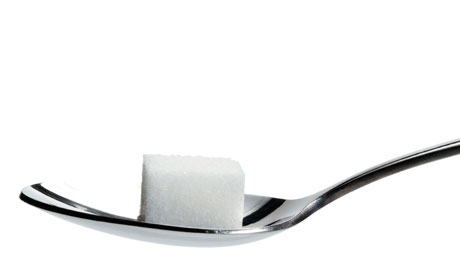Activists
argue EU policy is encouraging a bloody sugar rush in Cambodia yet the
commission is doing nothing to stop human rights abuses

'A large proportion of
sugar plantations in Cambodia were built explicitly for exporting sugar
to the EU under the 'Everything But Arms' policy.' Photograph: Rob
Stark / Alamy/Alamy
If you're reading this article with a cup of coffee, you should think twice before adding sugar to your brew. If it's from Cambodia,
it may be tainted – not by chemical pesticides or fertiliser, but by
human rights abuses. And if you're reading this in the European Union,
here's something else you should know: EU trade policy is encouraging
these abuses, and the European commission has yet to do anything about
it.
Cambodia falls under the Everything But Arms (EBA) tier of the EU's Generalised Scheme of Preferences
(GSP), which means that it – like other least-developed countries – can
export sugar and a host of other products to the EU duty free. It might
seem like a pretty sweet deal in theory, but it has not been so great
in practice for many Cambodians. In fact, it's been a disaster.
The underlying issue is a fight over land. Cambodia is in the midst of a massive land-grabbing crisis that has seen nearly 2.2m hectares
taken from mostly poor farmers and given to private firms as long-term
economic land concessions. In just half of the country where the Cambodian League for the Promotion and Defence of Human Rights (Licadho)
works, land-grabbing has affected at least 400,000 Cambodians since
2003. These victims are rarely, if ever, paid appropriate compensation.
Sugar
is among the worst sectors for land-related human rights abuses, marked
by violent evictions, the use of the military against civilians, and
attacks and arrests of community activists.
In Koh Kong,
for example, police destroyed villagers' crops and houses by bulldozer,
attacking villagers who resisted. Similarly, in Kampong Speu province,
2,000 hectares of farmland belonging to more than 1,000 families were
bulldozed under the protection of armed soldiers.
Meanwhile, on the sugar plantations themselves, there are several reports of widespread child labour.
The EU bears some moral responsibility for this situation. Its
preferential tariff treatment under the EBA has fuelled growth in
Cambodia's sugar sector, and indeed allows it to flourish. A large
proportion of sugar plantations in Cambodia were built explicitly for
exporting sugar to the EU under the EBA.
The abuses linked to sugar are no secret. They have been thoroughly and vividly documented by human rights groups, both in Cambodia and abroad. The UN special rapporteur for human rights in Cambodia also concluded
in a 129-page report published last September that "there are
well-documented, serious and widespread human rights violations
associated with land concessions that need to be addressed and
remedied". Yet the European commission stands idly by.
It doesn't have to be this way. The EU's GSP regulations
set up human rights safeguards, which require an investigation and
potentially the withdrawal of trade preferences where serious and
systematic human rights violations have been found. These same rules
expressly allow for product-specific investigations, meaning a
withdrawal of preferences for the sugar sector would not, for example,
affect similar preferences afforded to Cambodia's important and
lucrative garment sector.
The calls for an investigation into Cambodian economic land concessions and sugar began as far back as 2010 from Licadho and other NGOs. Members of the European parliament joined the chorus last October, and again earlier this year. But the commission has not implemented these legal safeguards.
On 15 May, the EU trade commissioner Karel de Gucht and foreign affairs representative Catherine Ashton
flatly refused parliamentarians' most recent request, implying that
they believed abuses in the Cambodian land sector were not "serious and
systematic". They did not elaborate or explain how they came to a
conclusion in direct opposition to that of the UN special rapporteur.
A
statement from the EU embassy in Cambodia echoed the vagueness from
Brussels, claiming that the land management situation in Cambodia
"continues to evolve" and "elements of progress have been recorded". In
other words, it seems the commission is going to ignore past abuses and
just see what happens – because, you never know, it might get better.
That's
not exactly the most proactive position. Nor is it the most coherent,
given the Cambodian government's 20-year habit of baiting foreign donors
with empty promises. It's also cold comfort for those who have been
evicted from their land without compensation, as well as imprisoned
activists, child labourers, and those who remain threatened by
land-grabbing.
More to the point, though, the commission's
refusal to investigate is very difficult to comprehend, considering the
enormous power that the EU wields via the EBA: the power to foster and
even create nascent industries; the power to boost undeveloped
economies; and the power to do the right thing if a country doesn't
respect international human rights norms.
The EU freely
used the first two powers in Cambodia, much to its benefit. There's no
dispute that it wields the third power as well. The only question left
is whether it will use it.

No comments:
Post a Comment